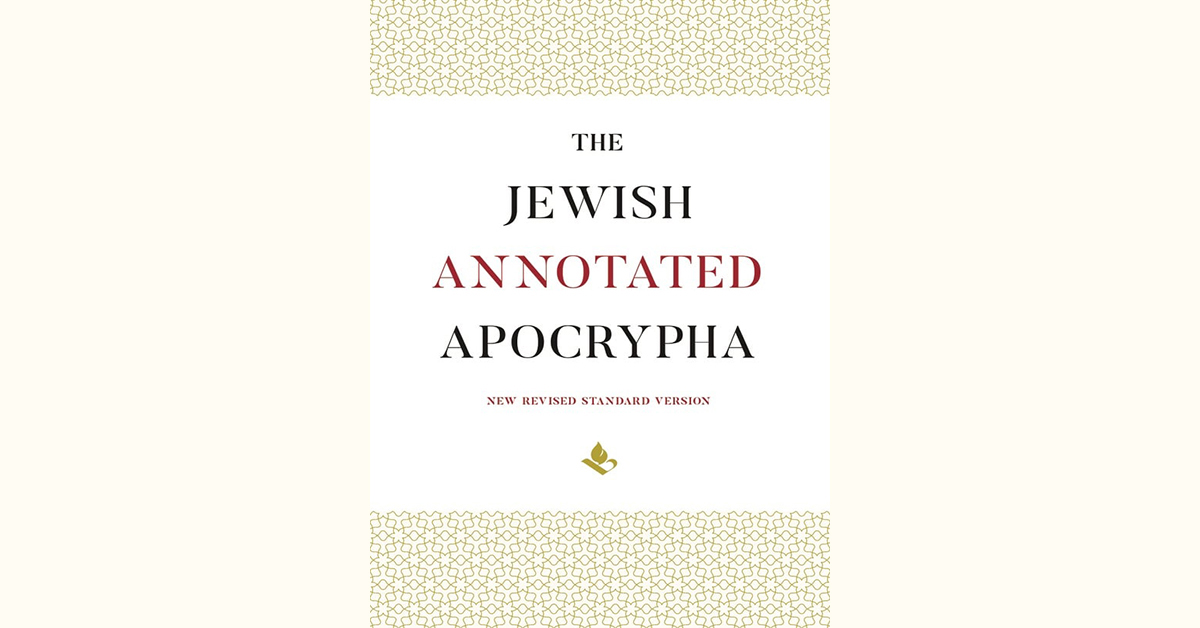Jun 24, 2021 By: yunews
 Jonathan Klawans and Lawrence M. Wills | Oxford University Press | 2020
Jonathan Klawans and Lawrence M. Wills | Oxford University Press | 2020
Reviewed by Rabbi Dr. Stu Halpern
“The Lord honors a father, above his children, and he confirms a mother’s rights over her children. Those who honor their father atone for sins, and those who respect their mother are like those who lay up treasure.”
If the above sounds vaguely biblical to you, you would not be mistaken. It comes from the third chapter of Ecclesiasticus (not Ecclesiastes), more commonly known as Ben Sira. The book, originally composed around 180 BCE in Jerusalem (around a decade before the Hanukkah story took place), is cited by the rabbis of the Talmud, but was not included in the Jewish biblical canon. Ben Sira’s book, and many others not included in the Bible, receive new translations, a running commentary, and introductory and thematic essays in The Jewish Annotated Apocrypha, edited by Jonathan Klawans of Boston University and Lawrence M. Wills of Brown University. (“Apocrypha” comes from the Greek word for “hidden.”) A gift to both lay readers and scholars interested in ancient Jewish literature, the volume’s scholarship covers works mostly unknown beyond specialists. Some titles might be familiar to traditional Jews. Many of those who observe Hanukkah might have heard of a “book of Maccabees,” but much fewer have read 1 Maccabees - 4 Maccabees. Others, however, are not so well known. Most who have heard the scroll of Esther read on Purim have probably not come across the Hellenistic-style “insertions.” These flowery, Greek additions include a dramatic prayer by Mordecai that reads, in part,“O Lord, Lord, you rule as King over all things, for the universe is in your power and there is no one who can oppose you when it is your will to save Israel, for you have made heaven and earth and every wonderful thing under heaven… And now, O Lord God and King, God of Abraham, spare your people; for the eyes of our foes are upon us to annihilate us.”
In the Masoretic text of Esther, of course, God is not mentioned, nor is prayer. Other ancient works discussed in The Jewish Annotated Apocrypha include the Book of Jubilees, which contains the earliest attestations of the idea, later appearing in the Talmud, that the Forefathers kept the mitzvot. Jubilees is beloved by many scholars of Second Temple literature for its quirky, pre-midrashic rewritings of biblical stories, including its claim that all national holidays originated in pre-Sinaitic times. (For example, in Jubilees' rendering, the holiday of Shavuot originated in God's promise (Hebrew: shevua) not to destroy the world again after he had done so in the time of Noah.) The excellent essays in the back of The Jewish Annotated Apocrypha provide helpful surveys of themes and history that inform one’s understanding of the apocryphal works. Albert Baumgarten on “Ancient Jewish Sectarianism,” Noah Bickart and Christine Hayes on “The Apocrypha in Rabbinic Literature,” and Aaron Panken’s contribution on “Hanukkah in the Apocrypha” are among the valuable pieces. As Klawans writes, “The books of the Apocrypha … preserve what we can hesitatingly refer to as theological ‘outliers’—assertions that seem uncommon in relation to what we know from other reserved Jewish texts." So while apocryphal works remain beneath the level of canonical Judaism, there is much to be gained by understanding their interpretive claims and appreciating their history. To read more Straus Center book reviews, click here. You can learn more about the Straus Center and sign up for our newsletter here. Be sure to also like us on Facebook, follow us on Twitter and Instagram and connect with us on LinkedIn.